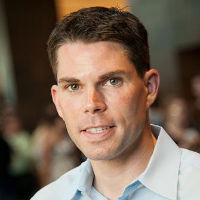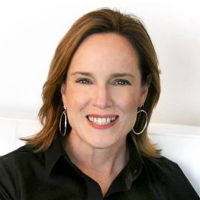
Need help with Digital Marketing? Check out the services at TopRank Marketing.
Have you noticed the phrase “digital marketing” being bounced around a lot more lately? Me too.
I admit that I’m one of the sources of that bouncing. With the rate of change occurring in the marketing world, I think describing what we do is something that isn’t really satisfied by just one phrase. Content, Search, Inbound, Multi-Channel, Integrated, all seem to have their place, but “Digital” seems to express what most companies are creating in their marketing right now.
What is digital marketing?
Digital marketing is a term used to describe the integrated marketing services used to attract, engage and convert customers online. Digital marketing utilizes multiple channels such as content marketing, influencer marketing, SEO, social media and online advertising to help brands connect with customers and uncover performance of marketing programs in real-time.
As much as people toss around “digital marketing”, I get the impression that we’re not all on the same page in terms of what it actually means. Just a few weeks ago, we posted a digital marketing predictions post that now has nearly 8,000 social shares. Both the answers and the feedback were quite varied.
To get an handle on how brand digital marketers view the topic, I reached out to a number of practitioners and executives to ask them directly:
How do brands define digital marketing?
I received responses from a great mix of business marketing leaders from very large corporations like IBM, Dell, AOL, and Bank of America as well as a few local companies (large and small) including: Capella University, Optum, Uponor, Chief and Carlson Rezidor Hotel Group.
So how did these marketers from companies of all sizes define “digital marketing”? Read on:

“Digital marketing is marketing in 2014 and we are all digital marketers. Every tactic in marketing today has an element of digital, of instrumentation.”
Tami Cannizzaro (@tamicann) Vice President of Marketing at IBM

“The simple response would be that Digital Marketing leverages electronic devices (PC, Tablet, Phone, digital OOH) to provide an experience that influences a desired audience to take an action. However, that sounds too easy when it’s significantly more complex than that. In my reality, Digital Marketing is the tip of the spear when engaging with a desired audience. It is not simply the channel of delivery, but the way in which an experience comes to life, across channels and in all channels. Digital is now the first touch point for the consumer and a channel where the consumer has greater control over what they see and when they see it. In a world where the intended target has limitless choices, it’s up to Digital Marketers to understand the customer journey, customer expectations and desired outcomes from a myriad of scenarios.
Digital Marketing is the tip of the spear when engaging with a desired audience. @KevinMGreen
Digital Marketing is similar to modern architecture in many ways. Form follows function. An object can take several different shapes and be adorned with a variety of different elements, but it’s up to the marketing architect to understand what will be acceptable to the masses and meet social expectations. If we go too far, we can be seen as interrupting, invasive and oversaturate the market. If we don’t go far enough, then we will not meet the expectation of our target audience, which is to provide them the value and utility they are looking for at the right time and in the right place.”
Kevin Green (@KevinMGreen) Executive Director, Marketing at Dell (client)

“Webster’s dictionary defines digital marketing as… nope, not going to do that. For me digital marketing is any way that we, as marketers, use digital media to influence users. Whether that’s the free stuff – search, social, etc. – or the paid stuff – PPC, display advertising, social ads, in game advertising, etc. across all available technologies and platforms. The real trick to effective digital marketing is using the right platform / technology / tactic to reach the audience that will buy your product / read your articles / engage with your content.”
Simon Heseltine (@SimonHeseltine) Senior Director, Organic Audience Development at AOL

“Engaging customers and prospects in digital channels, including mobile and social, where they are increasingly seeking information. We employ a number of strategies including offering informative content from a trusted source that is accessible across all digital devices, platforms and channels and which we believe empowers customers to make informed decisions that will help them improve their lives.”
Scott Gardner (@newmediascott) Senior Vice President, SEO and Content Channel Lead at Bank of America

“Anytime you use connected devices to reach people with your content, you’re engaging in digital marketing.”
Becky Ewert (@beckyewert) Content Marketing Strategist at Capella University (client)

“Although I’ve had similar responsibilities in different organizations over the past 15 years, my department names have been a moving target – internet marketing, e-marketing, e-productivity, ecommerce, interactive marketing, and digital marketing. All the while, I’ve tried to maintain a tether to the “integrated marketing” and “marketing mix modeling” concepts birthed in the 90’s. They’re so dreamy, right? In 2014, I’m now comfortable calling that Digital Marketing. The digital threads of data and attribution allow us to build multi-faceted, measurable, and flexible plans that have the ability to adjust to the co-variability of business priorities and customer preferences.”
Ryan Arnholt (@ArbenAngstrom) Director, Digital Marketing at Optum

“The unique thing about marketing through digital channels is that it goes way beyond messaging. Given all the ways brands can connect with consumers online, whether in social environments, via mobile apps, paid media, blogs, etc., each interaction leaves an impression of your brand. So in many respects, digital is marketing.”
Rachael Marret (in/rachaelmarret) SVP, Customer Engagement at Carlson Rezidor Hotel Group

“What truly defines successful digital marketing is an agile framework that integrates three basic elements that might be more internally focused: people, process and technology.
- PEOPLE (influencing behavior change internally while creating a compelling call-to-action or experience for the targeted audience)
- PROCESSES (investing in continuous improvement/change management to evolve the marketing platform)
- TECHNOLOGY (disciplined approach to technology adoption)”
Jon Orton (in/jonorton) Director, Marketing Operations at Uponor (client)

“Digital marketing starts with really rich content that people actually care about – including killer images. Then it’s delivering that content when and where your customers want it in hopes they like it and tell all their friends and followers. And make sure they can see it on a device that they use everyday, especially the one attached to their hip. But above all, don’t overwhelm people with your sales pitch. Keep it simple and teach them something so they consider you a valuable resource not just a company pushing product.”
Laurie Englert (@Chief_Laurie) Vice President, Marketing at Chief Manufacturing
With all this talk about digital marketing, I would be remiss not to mention that I will be the guest on #bufferchat:
#bufferchat – What’s next in digital marketing?
Wed July 16 at 9am PST, noon EST, 4pm GMT
This chat is hosted by the fine folks at Buffer and is dedicated specifically to the topic of digital marketing. In fact, we’ll be using the 2015 digital marketing predictions post as inspiration for many of the questions. I would love to see you join in the discussion.
Top image: Shutterstock


